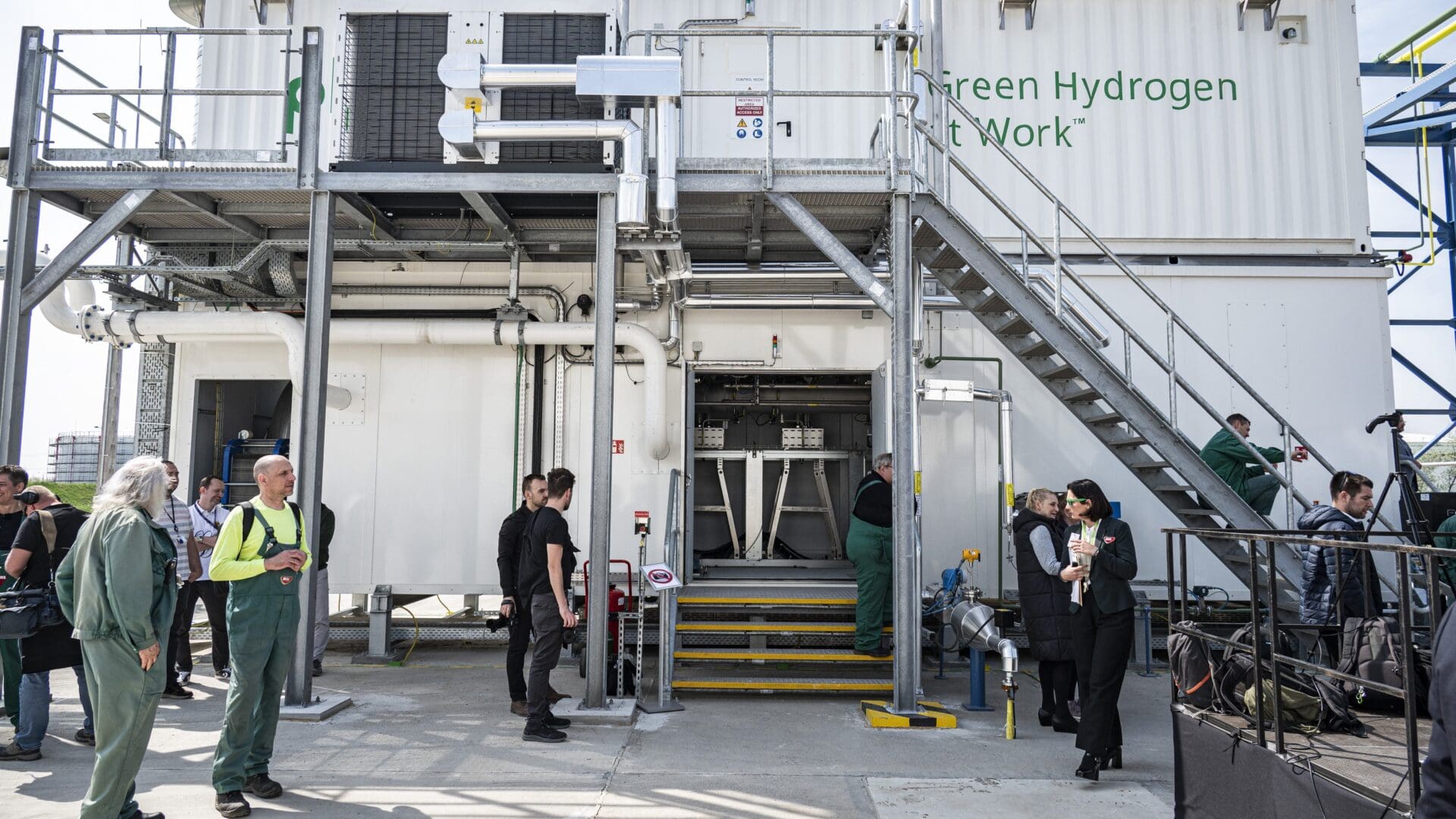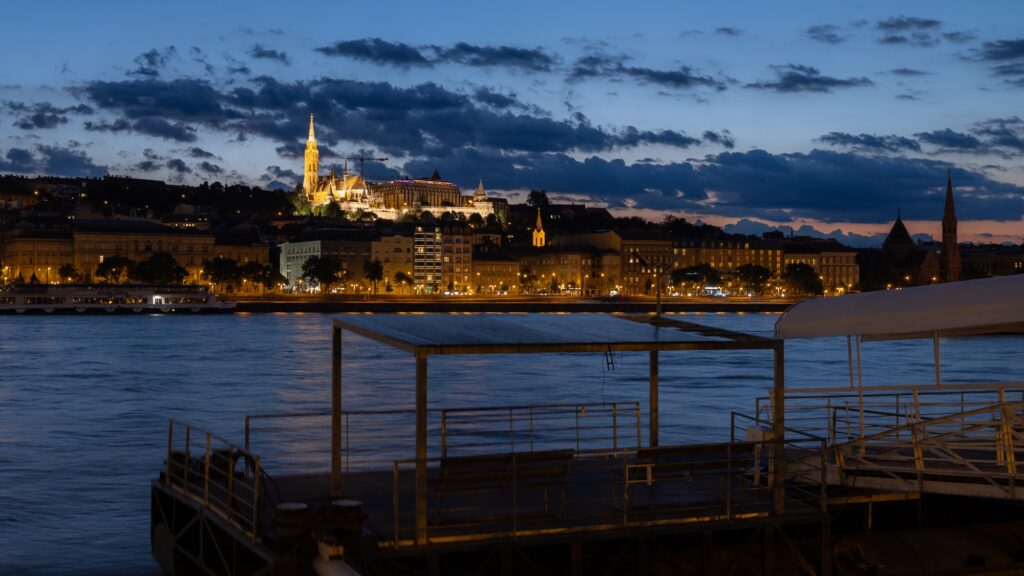MOL, Hungary’s leading Oil Company, unveiled Central Europe’s largest green hydrogen plant at the Dunai Refinery in Százhalombatta. This significant step towards decarbonization marks a milestone in Hungary’s energy transition. The plant, powered by solar energy, extracts hydrogen from water, producing no harmful emissions.
The production of green hydrogen here will be utilized internally by MOL for refining activities, replacing the grey hydrogen currently used, which is produced with emissions from gas power plants. Minister of Energy Csaba Lantos highlighted the plant’s potential to enhance the country’s energy sovereignty. The new 10-megawatt hydrogen plant has the capacity to produce 1,600 tons annually, constituting a small yet significant portion of the gas used in refining activities. The Hungarian oil giant aims to reduce its reliance on imported energy, currently at 64 per cent, by promoting domestic energy production.
The plant’s technology, developed by the US corporation Plug Power, operates with high efficiency, achieving a significant reduction in emissions. MOL CEO József Molnár emphasized that the technology’s implementation will lead to a reduction in emissions equivalent to removing about 5,500 vehicles from the roads. The process involves electrolysis, converting water into hydrogen and oxygen. The hydrogen produced undergoes further purification before being fed directly into MOL’s pipeline for refining. The oxygen generated is released harmlessly into the atmosphere. The plant consists of two containers, one housing the electrolysis process and the other for water purification and cooling. The setup is highly efficient, with 85-90 per cent of the energy from electrolysis utilized. The cooling system ensures optimal operation of the process.
With the commissioning of this plant, MOL takes a significant step towards sustainability in its operations. The company plans to implement similar technology at its other refineries in Rijeka and Bratislava, further contributing to the reduction of carbon emissions.
The Hungarian government sees this initiative as a crucial element in achieving carbon neutrality by 2050. Minister Csaba Lantos stressed the importance of domestic energy production in enhancing energy sovereignty and reducing reliance on imported energy sources.
The green hydrogen plant represents a new direction in energy production for Hungary. By harnessing renewable energy sources, such as solar power, the country aims to reduce its carbon footprint and contribute to global efforts to combat climate change.
The successful implementation of this technology sets a precedent for future investments in sustainable energy infrastructure. It demonstrates Hungary’s commitment to transitioning to a greener, more sustainable energy future. As MOL continues to invest in renewable energy technologies, it positions itself as a leader in the transition to a low-carbon economy.
Related articles:








